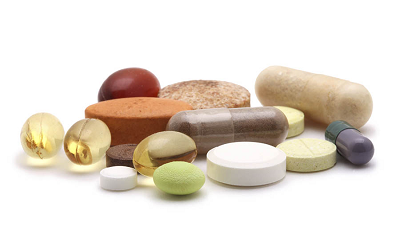Blog

How To Identify Kosher or Halal Vitamins By Melissa Rifkin, MS, RDN, CDN In this article: What Does it Mean to Follow Kosher or Halal? Gelatin Alcohol-Containing Ingredients Glycerin Kosher and Halal Certifications With so many vitamins and supplements available on the market today, it can be confusing and overwhelming to navigate the market. On top of choosing from the sheer volume of options, those with dietary preferences and restrictions, like those following Kosher and Halal, may have an even more challenging time finding the right vitamin supplements to meets their needs. Luckily, there are a few easy ways to narrow down the field when searching for Kosher and Halal supplements. Let’s take a deeper dive into how to identify Kosher and Halal supplements, and exactly what to look out for when choosing your next vitamin. What Does it Mean to Follow Kosher or Halal? Kosher and Halal refer to what is permitted to be consumed by Jewish and Islamic religious laws. Kosher refers to Jewish dietary law, while Halal cites Islamic dietary law. These practices include which foods are allowed to be paired together, slaughtering practices for certain animals, and restricted foods that are not to be consumed. While there are some overlapping characteristics of Kosher and Halal, there are some unique differences that we will cover. You may be thinking “what do vitamin supplements have to do with restricted foods and slaughtering practices?”. While the primary contents of vitamins and supplements are, in fact, the vitamins and minerals themselves, there are other ingredients that help bind the product together, create a capsule, or preserve the supplement. Let’s take a look at these ingredients. Gelatin Gelatin is one of the ingredients commonly used in supplements that is not considered to be Halal or Kosher. Oftentimes, gelatin is made from pork products, and in both Halal and Kosher eating, pork is strictly prohibited. You will most often find gelatin in a capsule-like supplement, especially softgel formulations like omega-3s and vitamin D, and while pork gelatin is most prominent, there are also Kosher and Halal-certified options, like bovine and fish gelatins, and cellulose and starch products, that can be used in place of traditional pork gelatin. This can be tricky to discern, so make sure you read your supplement labels with care. Buying vegan supplements will also ensure that you aren’t consuming products made from animals that aren’t Kosher or Halal. Alcohol-Containing Ingredients Flavors and colors added to supplements could have hidden alcohol in them, which would not follow Halal dietary law. Alcohol is most commonly found in liquid herbal tinctures, where it is used as a preservative. Additionally, alcohol can be used as a solvent in manufacturing supplements, so it is important to look at the ingredient list for alcohol-containing items when following Halal. While alcohol is not prohibited under Jewish law, it is required that the alcohol be produced under Kosher guidelines, which may not be the case for alcohol-based products in many supplements. When buying supplements online, you’ll often be able to filter for alcohol-free products. Glycerin Commonly used in the manufacturing of supplement and medication capsules, glycerin is generally derived from animal fat. Depending on the type of animal used, glycerin may not be a Halal or Kosher product. However, plant-based glycerin can be suitable while following these dietary practices. Glycerin is also frequently found in soaps, hair care, lotions, and makeup. If you’re unsure about which type of glycerin is found in a vitamin or supplement, choosing a vegan supplement option will help to alleviate that concern. Kosher and Halal Certifications While this list of ingredients is not exhaustive of what is not allowed while following a Kosher and Halal diet, these are very common ingredients that may keep a supplement from following the Jewish or Islamic dietary law. When reviewing supplement labels, one can look for certifications that verify whether or not a product meets Kosher and Halal requirements. For food products and supplements certified to be Halal, you can look for Islamic Food and Nutrition Council of America (ifanca) certifications on labels and packages. Similarly, Orthodox Union (OU) is an organization that certifies products as Kosher. When buying supplements online, you can often filter by these certifications to ensure you’re getting products that match your dietary needs. Many consumers who don’t follow Kosher and Halal seek out supplements with these certifications, as they are subject to stricter regulations than most supplements on the market. While navigating Kosher and Halal supplements can be tedious and may require extra time and effort to sort through the options, there are plenty of brands and varieties to choose from. This article was written by Melissa Rifkin, a registered dietitian living and working in NYC for over a decade. While she is a dietitian by profession, Melissa believes that being healthy does not just mean from a dietary perspective. Melissa practices with the belief that your body is a sanctuary and health encompasses eating nutritious foods, exercising, and balancing mental well-being. Melissa encourages small, attainable, and practical goals to help her clients achieve a balance in all three areas. She wants her clients to embrace the process of change, and to enjoy the foods and exercise they incorporate into their lives. Melissa is a fitness enthusiast and a certified spinning instructor who has run two marathons and enjoys cooking and creating new recipes. Learn more at melissarifkinnutrition.com.

Comments (0)